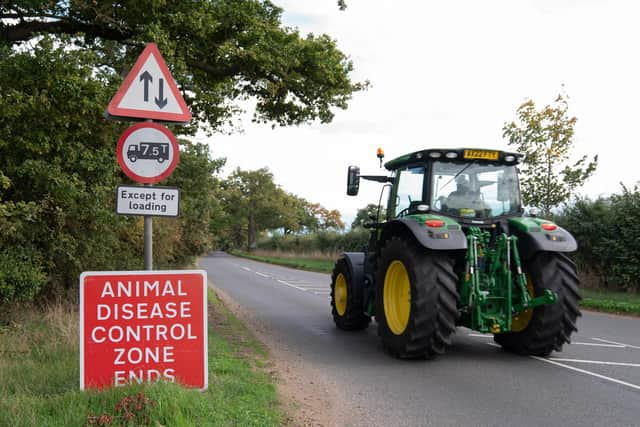Bird flu ‘prevention zone’ declared across Britain as virus hits flocks in Lewis and Orkney
Scotland's chief vet Sheila Voas said it was disappointing to have to confirm the two Scottish cases of avian flu, adding it was a "horrible way" for birds to die with the cases in Orkney a small "backyard" flock, while the Great Bernera one has been described as a small commercial unit.
An avian flu “prevention zone” has been declared across Great Britain in the face of rising case numbers amid the largest ever outbreak of the disease.
Advertisement
Hide AdAdvertisement
Hide AdIt is now a legal requirement for all bird keepers in Britain to follow strict measures to protect flocks from bird flu, including keeping free range birds in fenced areas and stringent biosecurity for staff on farms.


The UK has faced its largest ever outbreak of the disease in the past year, with 190 cases confirmed across the country since late October 2021 – 30 of which were confirmed since the beginning of this month.
Avian flu circulates in wild birds and when they migrate to the UK from mainland Europe over the winter and can spread the disease to poultry and other captive birds.
Under the prevention zone rules, producers with more than 500 birds must restrict access for non-essential people on their sites, staff must change clothing and footwear before entering enclosures and vehicles will need regular cleaning and disinfecting.
Backyard owners of smaller numbers of chickens, ducks and geese must also take steps to limit the risk of the disease spreading to their flocks, they are being warned.
In a joint statement, the chief veterinary officers for England, Scotland and Wales said: “Scrupulous biosecurity and hygiene measures is the best form of defence, which is why we have declared an avian influenza prevention zone (AIPZ) across Great Britain, meaning that all bird keepers must take action to help prevent the disease spreading to more poultry and other domestic birds."
In July, Scottish government agency NatureScot announced it was setting up a taskforce to respond to bird flu after the devastating outbreaks over the spring and summer among wild bird populations around Scotland's coast with gannets, skuas, geese and gulls the main birds affected.